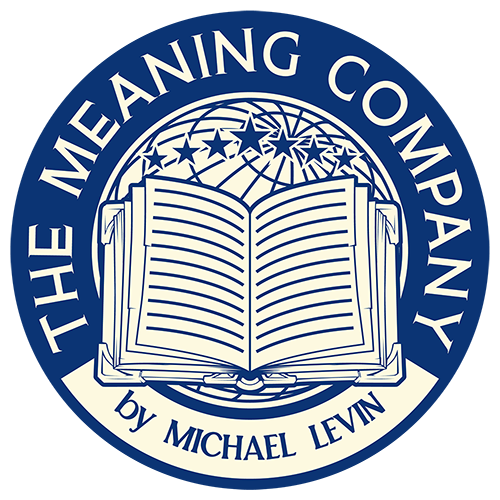New York Publishing Disrupted as Agents Increasingly Refer Ghostwriters for Books
Literary agents can earn referral fees by connecting aspiring authors to ghostwriters for independent publishing, providing a win-win-win solution for all involved.
Although the publishing landscape has transformed dramatically in recent years, certain industry practices remain surprisingly unchanged. One example is how literary agents handle potential clients who don’t fit the traditional publishing mold.
Every day, literary agents receive queries from aspiring authors who lack the marketing platform publishers expect. These individuals haven’t built massive social media followings, don’t deliver dozens of high-level keynotes, and aren’t, for instance, the baby doctor who appears weekly on the Today Show. Instead, many are successful businesspeople who would love to publish a business book or a memoir.
Here’s my question for literary agents: why not refer these individuals to top ghostwriters and earn a referral fee for making the connection?
The Economics Make Sense
Many literary agents overlook or dismiss the idea of connecting prospects with ghostwriters, but it’s worth considering! Let me explain why.
The business model for a literary agent is, of course, securing book deals with publishing houses. However, advances have been shrinking for decades, and few books earn out. Likewise, few ghostwritten books generate profit; most are used as marketing tools or simply given to family and friends. Consequently, there’s seldom a “back end.” Nevertheless, it’s often worthwhile for the client to invest in getting the book done. For the literary agent, a referral fee is certainly better than earning nothing at all.
Consider the economics: A professional ghostwriter typically charges between $50,000 and $165,000 for a comprehensive book project, depending on its scope and complexity. With a standard referral fee of 10%, agents could earn $5,000 to $16,500 per referral—substantial compensation for what amounts to a single email introduction. Rather than rejecting a prospective author, an agent might respond with something like this:
“Dear Mr./Ms. Potential Author, unfortunately, the New York publishing industry isn’t likely to offer you a deal. So instead, I’m connecting you with John Doe, an established ghostwriter, who can write your book and arrange for it to be published independently. I’ll let the two of you take it from here.”
Addressing Common Agent Objections
Some literary agents have told me they can’t be sure about the quality of the work they will receive from a ghostwriter. I respond that established ghostwriters like me have co-written dozens of books for major publishers. The quality of the book would remain the same, whether it is published by Simon & Schuster or by an independent publishing vendor.
Because they primarily work with traditional publishers, many literary agents are unaware of the significant changes in independent publishing. A small industry of exceptionally talented independent publishers has emerged, offering the same level of quality that was once the exclusive domain of the big New York houses.
Independent publishers now offer production values comparable to traditional houses:
• Professional cover design and interior formatting
• High-quality paper and binding options
• Equivalent presence on major retail platforms like Amazon
• Distribution channels that can include brick-and-mortar bookstores
Several independent publishers now provide distribution through major channels like Simon & Schuster, enabling placement in Barnes & Noble and even airport bookstores—once considered exclusive territory for major publishing houses.
Ethical Considerations
Some literary agents believe they have an ethical responsibility to potential authors to avoid directing them toward independent publishing. This perspective is puzzling. If an agent explains to a prospective author that their work is unlikely to secure a traditional deal but could succeed through ghostwriting and independent publishing, they’re providing valuable guidance about realistic options. Rather than leaving authors at a dead end with a simple rejection, this approach offers an alternative path to achieving their publishing goals.
The key ethical consideration lies in transparency. As long as agents clearly explain:
• Why the manuscript is unlikely to secure a traditional deal
• The costs associated with ghostwriting and independent publishing
• The potential benefits and limitations of this approach
…they provide a service that empowers authors to make informed decisions about their publishing journey.
From a practical perspective, the referral process requires little ongoing involvement from agents. Once an introduction is made, the ghostwriter usually manages all aspects of the project, including initial consultation and project planning, research and interviews, writing and revision processes, editing and publishing coordination. The agent’s role is complete after the initial referral, with no ongoing responsibilities beyond collecting the agreed-upon referral fee.
A Win-Win-Win Solution
As the publishing industry continues to evolve, successful agents will increasingly adopt multi-channel approaches to meet various author needs. Instead of viewing traditional publishing as the only legitimate path, forward-thinking agents recognize that different authors have different goals—some seek traditional validation, others prioritize creative control, and many simply want their stories told professionally.
By expanding their service model to include ghostwriter referrals, agents can:
1. Better serve a broader range of potential clients
2. Develop additional revenue streams
3. Participate in the growing independent publishing market
4. Build relationships with emerging authors who may later develop the platform needed for traditional deals
In sum, connecting a potential author with a proven, competent ghostwriter creates a win for everyone involved.
